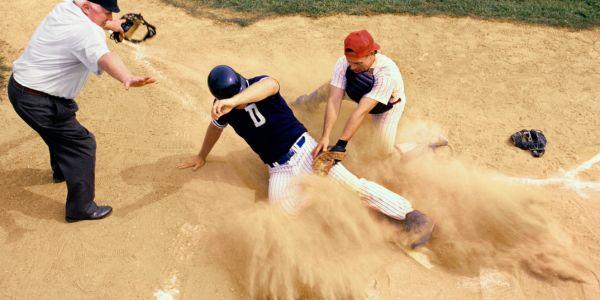Do you take some losses harder than other losses?
For many players, some losses resonate more deeply depending on the game’s significance, their level of play, or their expectations heading into the game.
These players are often beset by regrets, sometimes known as the “Shoulda, Coulda, Woulda” Trap.
For example:
- “I shoulda been more aggressive at the plate.”
- “I coulda won the game if I trusted my fastball.”
- “I woulda scored the go-ahead run if I didn’t make that mistake on the base paths.”
Regret is a complex and uncomfortable emotion for baseball players. Regret can be an overwhelming loop of self-criticism, frustration, and shaky confidence.
When regret keeps your mind trapped in the past or underperformance, it becomes a negative force that impedes preparation, improvement, and future play.
Even though regret can feel overwhelming, you can use those feelings to your advantage if you look at your play through an objective lens. While you can’t undo the past, you can learn from it.
Regret can show you what to do differently, motivate you to improve, and help you make better game-time decisions in the future. After a loss, you have two choices: lament or learn.
When you lament or obsess over what you could have done differently, you waste time and energy that could be better used to change, improve, and prepare for the next game.
When you look for the lesson, you can identify specific areas or strategies for improvement. For example, maybe late in a tough loss, you recognized you broke your rhythm on the mound by taking more time between pitches which added to your anxiety.
Identifying this issue can help remind you to maintain a comfortable rhythm while on the mound during pressure moments.
In Game 1 of the 2024 World Series, the Los Angeles Dodgers Freddie Freeman hit the first game-ending grand slam in World Series history with two outs in the 10th inning to give the Dodgers a 6-3 victory over the New York Yankees.
New York centerfielder and 6x All-Star Aaron Judge, who struck out swinging in his first three at-bats, talked about the importance of learning from the mistakes and moving forward instead of lamenting the loss.
JUDGE: “You can’t sit here and mope. You can’t sit here and complain. You can’t shoulda, coulda, woulda. It’s time to go to work. We lost this game. Learn from it. See where we can improve and go out there and win the next one.”
It’s easy to fall prey to the “shoulda, coulda, woulda” mindset after a tough loss…
However, the difference between those who bounce back and those who continue to under perform lies in the ability to process tough losses constructively, learn what to do differently, and confidently embrace their next opportunity.
Reject the “Shoulda, coulda, woulda” Trap. Understand lamenting over the last game or dwelling on mistakes does nothing to improve future performances.
Instead, channel your energy into finding ways to maximize future opportunities.
Related Sports Psychology Articles
- How to Get Over a Loss After a Game
- Joe Saunders Stays Positive After Loss
- How to Use Your Mind to Win Against the Best Teams
*Subscribe to The Sports Psychology Podcast on iTunes
*Subscribe to The Sports Psychology Podcast on Spotify
The Mental Edge for Ball Players (Digital Download)
“The Mental Edge for Ball Players” audio and workbook program teaches you to get a competitive edge in baseball and softball by overcoming a lack of focus, low self-confidence and other mental game obstacles. Learn practical mental strategies to improve your performance in competition.
“A quick note to let you know how effective your programs worked for my son who is 17 and plays varsity baseball in VA. In late 2009, I ordered the “Relaxed Athlete Program” for my son because I saw he was pressing too hard at the plate and had disappointing results for his season. Thanks to your programs, my son now has a completely new approach to the game of baseball (and school) and it’s more fun for him now. He made all-district player at his position and hit .443 this season. A complete 180 degree turn around from last year.”
~Mark M., Sports Parent


